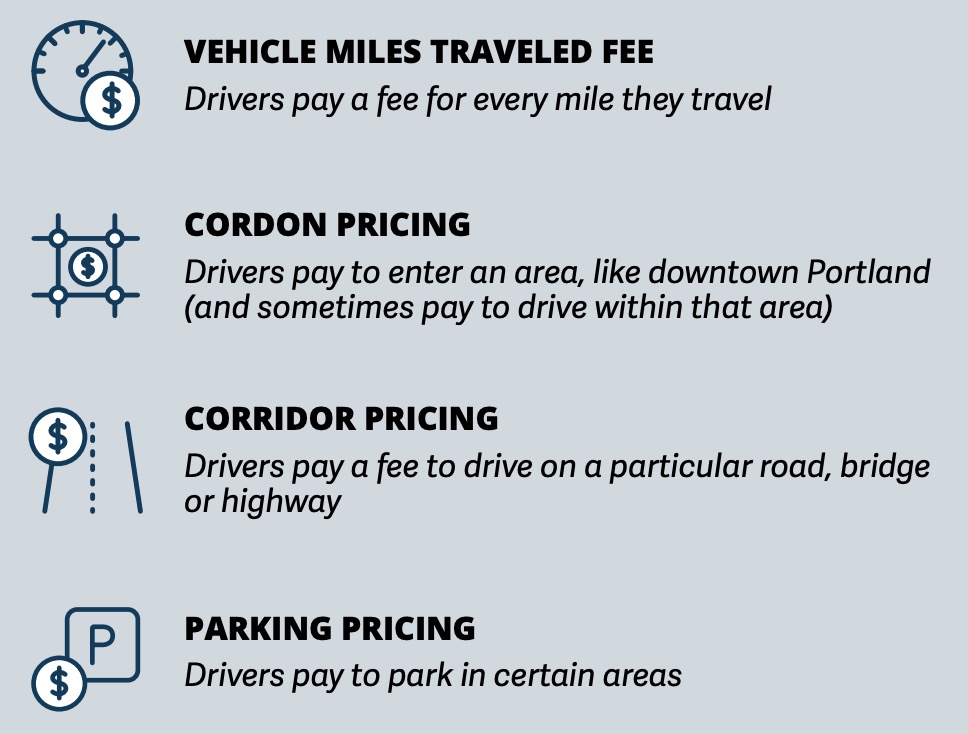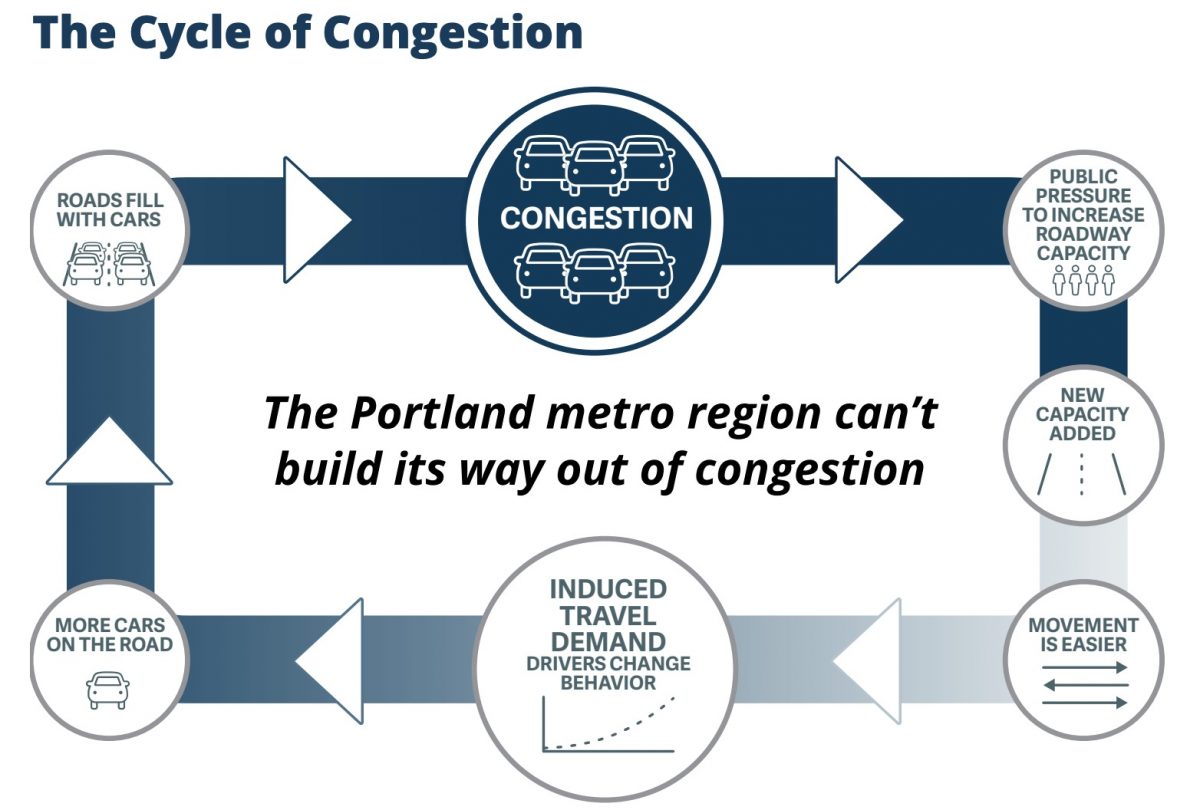
(Photo: Jonathan Maus/BikePortland)
“The range of e-bikes is exploding right now. I really think it is a new variable in the conversation.”
— Doug Kelsey, TriMet
Even before the Covid-19 pandemic took a cleaver to municipal budgets and dramatically impacted mobility patterns regionwide, congestion pricing was already a hot topic. Now there’s new urgency around the idea of charging people to use roads.
Currently Metro, the Oregon Department of Transportation and the Portland Bureau of Transportation are involved in separate — but related — discussions about if and how to implement tolls.
On Thursday Metro’s Joint Policy Advisory Committee on Transportation (JPACT) was briefed on the Metro Regional Congestion Pricing Study (not to be confused with PBOT’s Pricing for Equitable Mobility or ODOT’s I-5 and I-205 tolling efforts).


Metro Planner Elizabeth Mros O’Hara presented the study to JPACT members and said, “The logic behind congestion pricing is really simple. If you charge motorists a fee to use roadways and use the money on the things that you care about, people are likely to change their behavior.”
That change in behavior can have wide-ranging impacts not just to budgets and mobility, but to health outcomes. Mros O’Hara told JPACT members that after Stockholm implemented congestion pricing, acute asthma cases for young children in adjacent areas dropped by 50%.

Metro is exploring whether or not four different types of pricing strategies can support the region’s transportation priorities: A vehicle miles traveled fee where drivers pay for every mile they travel; A “cordon pricing” scheme where drivers would pay to enter a pre-determined area (like downtown Portland); A corridor pricing approach where drivers would pay a fee to drive on a particular road, bridge, or highway; or good, old-fashioned parking pricing.
Clackamas County Commissioner Paul Savas expressed concerns about fairness based on his view that people he represents don’t have the same breadth of transportation alternatives as those who life in Portland. “The transportation options in Portland are fantastic compared to what we have in Clackamas County,” Savas said. If viable alternatives to driving are not in place before tolling starts, Savas added, “It feels more like extraction of dollars than it is a change of behavior because there are no options.”
Advertisement
“65 to 75% of our of our population leaves the county every day and does not have access to those alternatives,” Savas explained. “All they can do is drive a car.” If people have no other options but to drive, Savas warned that any pricing scheme would remain “highly unpopular and highly controversial.” “I just want to just put it put that out there that that this is a big deal, and it’s going to be highly, highly politically charged,” he warned.

TriMet General Manager Doug Kelsey echoed Savas’ concerns. He shared the example of Copenhagen and Stockholm where congestion pricing has already been implemented and where viable alternatives to driving are well established. Kelsey said the potential of pricing “is absolutely immense” but that to be successful we must invest in alternatives beforehand.
Kelsey then brought up — rather unexpectedly — the potential of electric bikes and cycling in general. “I really encourage us to also consider e-bikes in here. The range of e-bikes is really… it’s exploding right now. I really think it is a new variable in the conversation.” “But even without e-bikes,” Kelsey continued, “the Copenhagen’s and the others of the world, they really factored cycling in…not just transit.”
“The e-bike phenomenon, I think, is here to stay. And it’s just going to be nothing but growth. So I wouldn’t underestimate or encourage us to be as part of our consideration to factoring the distance and power that e-bikes might be able to bring,” Kelsey said.
“This is not ideological. This is existential.”
— Chloe Eudaly, City of Portland

Portland City Commissioner Chloe Eudaly is a big fan of congestion pricing; but she remains concerned about its fairness. She also thinks e-bikes can play a significant role in allowing more people to move around without having to drive — and pay new tolls that come with it. “We now have a full e-bike fleet [as part of the newly expanded Biketown bike share system] and we’re deploying that fleet in east Portland, which is greatly expanding bicycles as a viable transportation option for commuters across the city,” she said.
Eudaly reminded JPACT members that every decision they make must keep in mind that 40% of greenhouse gas emissions in Oregon come from transportation emissions. “This is not ideological,” she said. “This is existential.”
Eudaly said tolling has potential to help the region achieve both climate and revenue goals; but it must be done carefully to not unfairly impact people who rely on cars. “The City of Portland, despite how dense it is, despite our great transit system, despite how walkable and bikeable many of our neighborhoods are — we have a long way to go before we could consider implementing congestion pricing on our roadways,” she said. “There’s a lot of work to do, people need alternatives, but this is absolutely the time to start considering these options.”
Metro plans to continue studying options through the end of 2020 and decide on next steps early 2021.
— Jonathan Maus: (503) 706-8804, @jonathan_maus on Twitter and jonathan@bikeportland.org
— Get our headlines delivered to your inbox.
— Support this independent community media outlet with a one-time contribution or monthly subscription.

